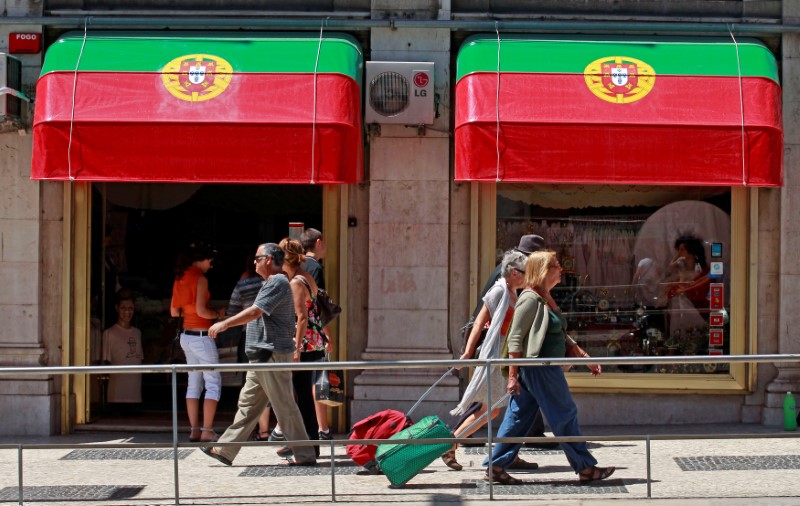By Andrei Khalip
LISBON (Reuters) - Portugal's budget deficit was just 0.1 percent of gross domestic product in the 12 months ending in September, putting the country on course to beat its full-year target and reduce its debt burden.
The third quarter year-on-year figure compared with 1.3 percent three months earlier and indicated a July-September surplus of 2.6 percent.
The National Statistics Institute said on Friday that in the first nine months of the year the deficit fell to 0.3 percent of GDP from 2.8 percent in the same period of 2016.
Portugal exited an international bailout program in 2014 with many European officials holding the country up as a success story in reforming its economy.
The official full-year deficit target is 1.4 percent - which would make it a new record low in over four decades of the country's democratic history, but Prime Minister Antonio Costa said on Thursday the budget gap should narrow even more from last year's 2 percent and end the year below 1.3 percent.
The European Union demands deficits at or below 3 percent.
Finance Minister Mario Centeno told reporters the deficit reduction "shows that the sustainability of public accounts is now a reality" in Portugal and will allow for the biggest cut in the debt-to-GDP ratio in 19 years - to around 126 percent in 2017 from last year's around 130 percent.
This is still a huge debt; the EU wants it at or heading down towards 60 percent.
The latest deficit estimate does not include any impact from the recapitalization of state-owned bank Caixa Geral de Depositos by the state, worth around 4 billion euros, or 2.1 percent of GDP.
The government has said it expects Brussels to disregard the recapitalization in this year's deficit and INE is involved in a dialogue with Eurostat regarding the impact of this complex operation on national accounts.
The INE said that in the 12 months to September, revenues rose 2.7 percent while spending edged 0.1 percent lower from June levels.
"In the setting of higher growth than initially projected we see revenues following the same trend as the economy," Centeno said.

The Socialist government expects economic growth to accelerate to 2.6 percent this year after 1.5 percent in 2016. Its initial forecast in the 2017 budget had put this year's expansion at just 1.5 percent.